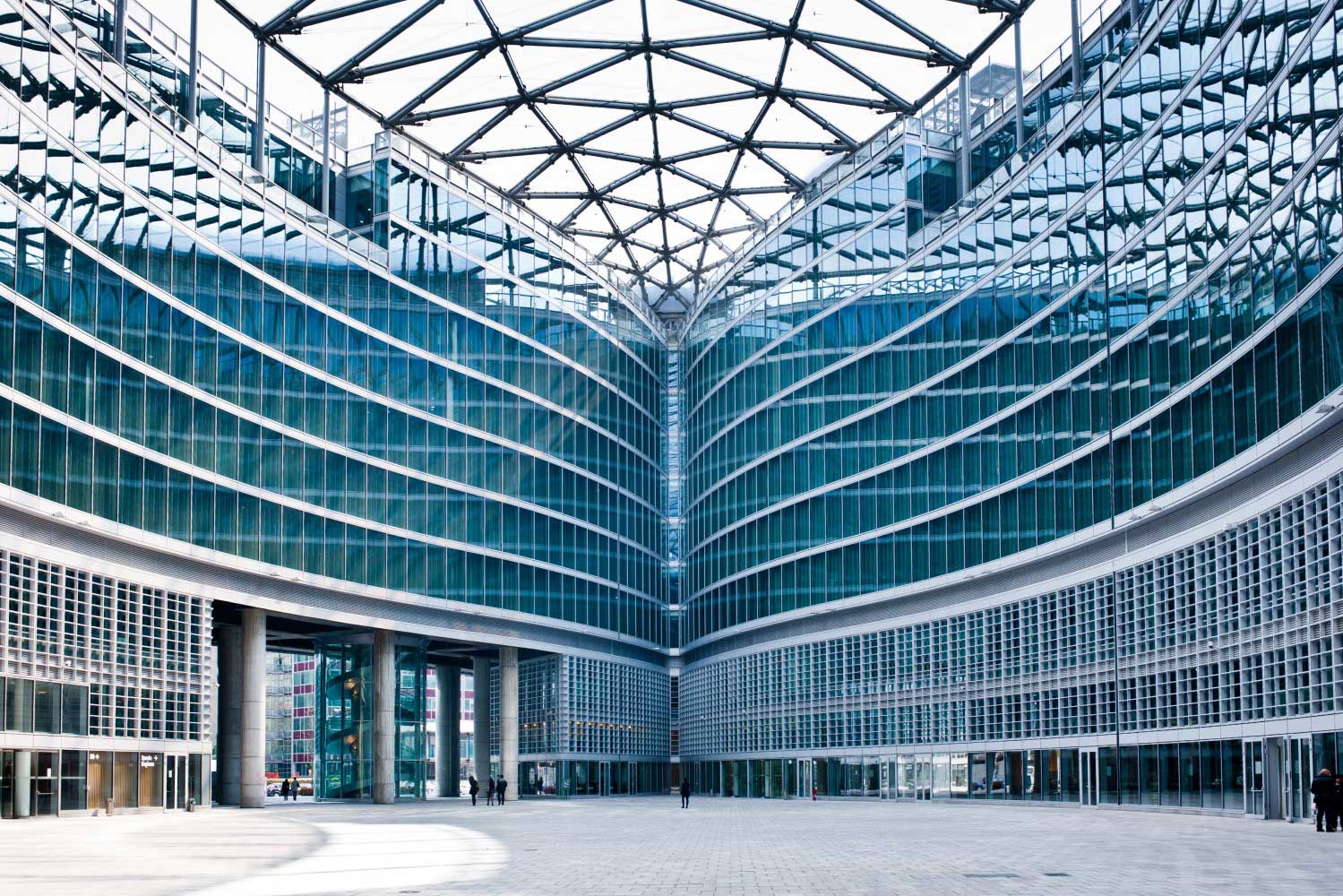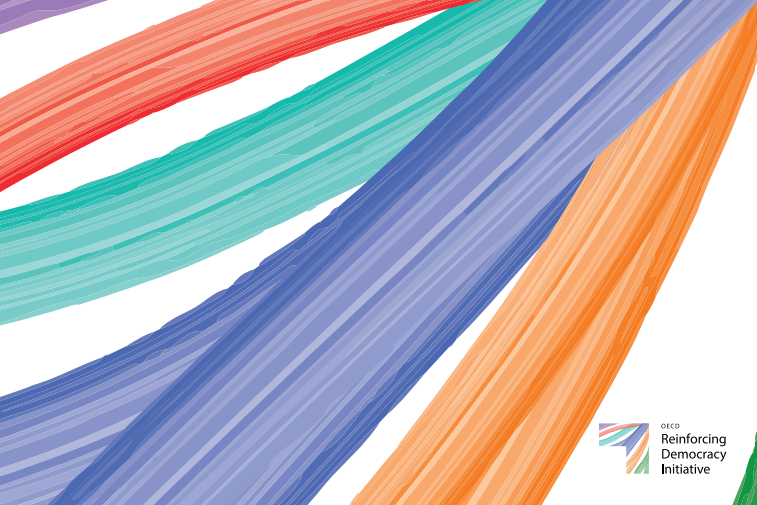To meet today's complex challenges, we need to see democracy as a system impacting many aspects of our lives, and be able to distinguish the good from the bad.
Many people - including many of today’s youth - are losing faith in the current ‘democratic’ order to deliver todays big challenges be it cost of living, rising inequality or climate. Just as we saw with Brexit and Trump, they want change.
115 years earlier, Mahatma Gandhi felt the same. After spending several months in England, he was determined that India should not adopt a European ‘consumer-democratic’ model which he believed “enslaved” people through “temptation of money and of luxuries”. He believed European democracy undermined people's freedom of thought and ability for genuine bottom-up governance. So on the ship back to Cape Town, he outlined an alternative, authentically Indian version of democracy in his now famous pamphlet, ‘Hind Swaraj’.
Hind Swaraj, roughly translated as Indian Self Rule, and initially banned by the British, became "the intellectual blueprint" for India's independence movement. Now, in 2024, we ourselves need a similarly inspiring alternative vision to move towards. Because without one we are vulnerable to falling back on the divisive and paternalistic politics we know and understand.

The ‘democratic’ or ‘authoritarian’ choices that emerged in the Covid-19 crisis response are a good example of the potential futures we are choosing between. The bottom-up ‘democratic’ method of Singapore, Germany and South Korea might feel workable for countries with sophisticated public services and a tradition of civic obedience. But many countries, rich and poor, are not in that position.
In the face of this, top-down, authoritarian responses can simply seem like the only viable option. The Wuhan model of strict social distancing, monitored and enforced through digital surveillance, new police powers and drones, is a strategy any country can understand and try to implement.
If we want democracy to trump authoritarianism, we need democratic models that can simultaneously strengthen both our health systems and our freedoms. And to identify them, we need to start recognising that democracy is not automatically good: there can be bad democracy too.
To be able to see the difference between the two, we need to zoom out and see democratic systems as a whole. One way of doing this is to apply Albert Bandura’s Social Cognitive Theory to democracy.
Social Cognitive Theory starts with our life circumstances: who we meet, what information we consume, how we make a living, and so on. Whatever circumstances we experience influence the beliefs we hold, which in turn drive our actions. The actions we take then shape our life circumstances going forward, and so the cycle keeps going.
Crucially, if we recognise democracy as a system of interconnected institutions that govern our daily lives, from the justice system to our media culture, we can better appreciate the impact they have on our life circumstances, and therefore the beliefs we hold, and the actions we feel are possible. I call this the cycle of democratic culture.
Figure 1: the cycle of democratic culture

This cycle can be positive (Figure 2) or negative (Figure 3). A good democratic culture happens when the institutions people interact with improve their life circumstances, in turn boosting their empathy for others, and their confidence that acting on societal and personal challenges is possible and worthwhile. This enables them to undertake increasingly ambitious and effective actions that are aligned with both the big challenges of their generation, and with their own purpose.
Figure 2: positive cycle of good democratic culture
Increasing agency, hope and aspiration.

A bad democratic culture does the opposite. People see their life circumstances stagnating or worsening, and trust in shared truth, community, safety and justice are eroded. Polarization and apathy build. Fewer people believe their actions make a difference, so fewer people act.
Figure 3: negative cycle of bad democratic culture
Increasing powerlessness and apathy. Reducing hope and aspiration

This is the situation for many people voting for anti-democratic parties today. They feel trapped by a democratic system that isn’t improving their lives. Without a compelling vision for an alternative, they vote for any change. Because that’s what they know for sure that they need.
The current binary public debate of fascism vs democracy is symptomatic of the problem. Too often are those who dare challenge the sanctity of western representative democracy labeled as pariahs by a polarized media culture that shuts down mature debate. This blinds our critical eye and limits our ambition, inhibiting the spread of much needed innovations and visions of better democracy that are already out in the world.
Instead, upgrading our democracy should be a constantly evolving inquiry into the limits of what is possible. One that is necessarily different in different places, and that draws just as much on the latest artificial intelligence as it does ancient wisdom traditions. One that recognises democracy’s diverse and nonlinear history beyond the west, from the great assemblies that governed Mesopotamia around 1500BC, to the Sanghas and Ganas of 600BC India, the Ugandan Buganda, and many others.
To help us think through what this looks like in practice, I’ve developed a hierarchy of democratic needs that complements the cycle of democratic culture above. Not to outline a single prescription of how to ‘fix’ democracy; there isn’t a single approach. Consider it a model to help you clarify what to design democracy to do, wherever you are.
Figure 4: A hierarchy of democratic needs

The base of the hierarchy is ‘truth’, as without a shared understanding of the situation we are in, it becomes incredibly difficult to agree how to move forward as a society. For example, if we don’t agree that climate instability is a threat which needs to be addressed, maintaining our safety becomes difficult.
Safety itself follows as another critical foundational need. The age of multiple crises that we are in makes many feel unsafe, and the fear that stems from this is perhaps the key driver of anti-democratic forces. A key priority for any democratic innovation therefore must be to increase the ability of governments and surrounding institutions to tackle the big risks that society faces.
Finally, people also need to see that society is just - that their actions count and are valued, and that those who harm others are held accountable. They also need to have opportunities to form community and compassion, so that they can see that they are not alone and that together, they can make a big difference to their futures.
When all these pieces are put together, people’s agency and empathy are mutually symbiotic and the cycle of good democracy gathers momentum and brings more people in.
The good news is that the movement for good democracy is growing stronger. Citizens’ Assemblies are perhaps the highest profile example of this, with presidents and activists alike pushing for their implementation and empowerment. In 2020 we helped organize the world’s first Global Citizens’ Assembly for COP26, with these foundational principles in mind. It’s now being established as a permanent institution.
We’re also seeing it in other forms, from the mutual aid groups that emerged globally in the early stages of the Covid-19 pandemic, to politicians and public service providers who empower people to lead action as they see fit.
The stakes in the battle for democracy are incredibly high, but in a way the pathway to good democracy is simple and timeless. It’s about delivering on our fundamental desires for safety and freedom, while cultivating community and care for each other and the planet. If our current democracy isn’t doing that, we need to change it - or risk losing it altogether.
2024 OECD Global Forum on Building Trust and Reinforcing Democracy
This blog is part of a collection of opinion pieces that showcases diverse perspectives on the new frontiers of citizen participation, from thought leaders and practitioners across national and local government, academia, business, trade unions, and civil society. It offers insights and inspiration for discussions at the 2024 Global Forum on Building Trust and Reinforcing Democracy, and future multidisciplinary work at the OECD.
The Global Forum takes place in Milan, Italy, 21-22 October 2024. Register to follow the discussions online: https://www.oecd-events.org/global-forum-on-democracy/en
This blog article should not be reported as representing the official views of the OECD or of its Member countries. The opinions expressed and arguments employed are those of the authors.


